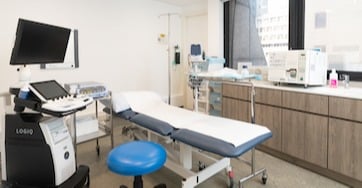- About
- Our Clinics
- Patient service categories
- Family Medicine
- Musculoskeletal Health
- Mental Health
- Specialist Medicine
- Pregnancy & Midwifery
- Women's Health
- Paediatrics
- Wellness
- Packages
- Resources
- Contact
- Insurance
- Store
Women’s Services
- Women's Health
- Maternity Services
- Obstetrics Services
- Midwifery Services
- Pregnancy Packages
- Due Date Calculator
- Week-by-Week Pregnancy
- Week 1
- Week 2
- Week 3
- Week 4
- Week 5
- Week 6
- Week 7
- Week 8
- Week 9
- Week 10
- Week 11
- Week 12
- Week 13
- Week 14
- Week 15
- Week 16
- Week 17
- Week 18
- Week 19
- Week 20
- Week 21
- Week 22
- Week 23
- Week 24
- Week 25
- Week 26
- Week 27
- Week 28
- Week 29
- Week 30
- Week 31
- Week 32
- Week 33
- Week 34
- Week 35
- Week 36
- Week 37
- Week 38
- Week 39
- Week 40
- Pregnancy Blogs
- Gynaecology Services
- Women's Health Physiotherapy
- Mental Health
- Make an Appointment
- Contact Us
Your Pregnancy at Week 11
This week, your baby is as big as a lime.
The following information was reviewed by Dr. Cheng Ka Ning, Katherine
At A Glance

Baby’s heart beat
Your baby's heart now consists of four hollow chambers, and with a bit of luck, you will be able to see and hear the beating in an ultrasound appointment with our obstetricians.
Weight gain, uterus becomes heavy
Your baby is growing rapidly, so you may notice that your weight starts to increase and your waistline thickens. Your uterus may feel heavy as it expands, and the muscles and ligaments that support your belly may become loose, which is a sign that your baby is growing healthily.
Persistent frequent urination, changes in discharge
In the early stages of pregnancy, as the uterus begins to grow, frequent urination will persist. It will not be relieved until the uterus moves upwards after approximately 16 weeks of pregnancy.
NIPT prenatal testing is now possible
It is time to book a Non-Invasive Prenatal Test (NIPT), which can detect approximately 90% of fetuses with Down Syndrome.
Baby Development at 11 Weeks

Some essential organs are formed
A lot happens in your baby's tiny body when you are 11 weeks pregnant. The baby's head appears particularly large, almost as long as the body. The baby's intestinal tract, liver, and kidneys have basically completed development, and the limbs can move freely in the amniotic fluid, such as turning over, clenching fists, and stretching. However, pregnant women still cannot feel the baby's activities at this time. The first fetal movement is usually felt around 16 to 18 weeks.

Boy or girl?
The reproductive organs and brain of the fetus are growing, and the gender is about to be known! The baby's reproductive organs are still developing, and it will be 12 to 16 weeks before the sex can begin to be discerned. At this stage, the baby's nerve cells are growing rapidly and have formed synapses connecting the brain nerves. The baby begins to respond more, can swim in the amniotic fluid, and can also wave their little hands and feet.
You Pregnancy Symptoms at Week 11
During the 11th week of pregnancy, your baby begins to grow rapidly, and you will be more tired than usual, which will potentially affect the quality of your sleep. The uterus continues to grow in order to accommodate your baby's development, and the muscles, fascia, and peritoneum in front of the uterus may be stretched, causing a tingling sensation. However, by the 11th week, many early pregnancy reactions such as nausea may have been alleviated. Due to the increase in blood volume in the body, many mothers-to-be have flushed faces.
Other possible symptoms during the 11th week of pregnancy:
- Frequent urination
- Abdominal tingling
- Increased secretions
- Uterine discomfort or pain
- Increased facial oil and prone to acne
- Fatigue
- Constipation
Pay special attention to the colour of your discharge
If the vaginal discharge increases but is colourless, it is a normal pregnancy reaction. If the discharge is dark yellow, dark brown, or anything other than transparent, it is recommended that you consult your obstetrician for diagnosis.
Risk of miscarriage
There is a higher chance of miscarriage between 4 and 11 weeks of pregnancy. The main cause of miscarriage in early pregnancy is a chromosomal abnormality of the fetus, which prevents it from growing. The main signs of miscarriage are bleeding and abdominal pain. Abdominal pain is a very common pregnancy symptom, but if severe abdominal pain is accompanied by bleeding (red, pink, or brown), it is important to speak to your obstetrician as soon as possible.
Advice from OT&P Obstetricians
Entering the eleventh week of pregnancy, the development of the fetus has been stable. If you haven't announced the good news yet, you can prepare to tell your relatives and friends!
Expectant mothers will undergo a series of blood tests, including prenatal blood tests (blood type, hemoglobin, platelets, and infectious disease screening), fetal chromosome examination, and Down syndrome (T21) screening, which can detect chromosomal abnormalities and genetic intellectual disability diseases. Two more common trisomies are also detected: Edwards syndrome (T18) and Patau syndrome (T13). Available tests during the eleventh week of pregnancy include:
- Oscar Ultrasonic Serum Screening is a traditional fetal chromosome examination. Ultrasonic scanning is used to measure the thickness of the subcutaneous transparent layer of the fetal neck (commonly known as the cervical skin), and then combined with blood drawing, the mother's age, and gestational weeks to calculate the fetal chance of Down Syndrome with 90% accuracy.
- "Non-Invasive Fetal Chromosomal Screening" (NIPT) is a more accurate screening method. The expectant mother's blood contains a small amount of fetal chromosomes, which NIPT can detect through blood tests as early as 10 weeks before the fetus is due. NIPT is 99% accurate in detecting Down syndrome and can also be used to detect sex chromosome-related disorders and microdeletion syndrome.
Pregnancy toxemia screening can detect whether the mother-to-be is suffering from pregnancy toxemia. Pregnancy toxemia usually occurs after 20 weeks of pregnancy, which may lead to placental insufficiency, resulting in an inability to provide enough blood to the fetus, and can affect the health of both the pregnant woman and fetus, as well as their life. Therefore, pregnant women should be screened for pregnancy toxemia from week 11-13 and 6 days of pregnancy, in order to take medication early and reduce the chance of placental insufficiency.
It is time to make an appointment for an inspection. Contact your obstetrician and gynecologist as soon as possible and arrange for the appropriate examinations to protect the health of the mother and fetus. You can also book a consultation with our doctor.
Tips for 11 Weeks Pregnant
- Drink plenty of water
- Use natural, mild, and non-irritating skin care products. You can ask our doctors which skin care products are suitable for you and perform simple stretching exercises before going to bed, such as cat-cow poses to stretch the back, combined with deep breathing movements to relieve back discomfort. Our physiotherapists at the wellness clinic can guide you through simple stretches to ease discomfort.
- Book an appointment with our obstetrician-gynecologist for prenatal blood testing, fetal chromosome, and pregnancy toxemia screening.

Related Pregnancy Blogs
Related Pregnancy Services
Plan your pregnancy, birth & beyond with OT&P
Whether you’re planning for an addition to your family or are already pregnant, OT&P’s Maternity Team is here to help.
 Central General Practice
Central General Practice
 Repulse Bay
Repulse Bay
 Clearwater Bay
Clearwater Bay
 BodyWorX Clinic
BodyWorX Clinic
 Central Specialist Clinic
Central Specialist Clinic
 MindWorX Clinic
MindWorX Clinic
 Partner Clinics
Partner Clinics
 Family Clinic
Family Clinic
 OT&P Annerley Midwives Clinic
OT&P Annerley Midwives Clinic




